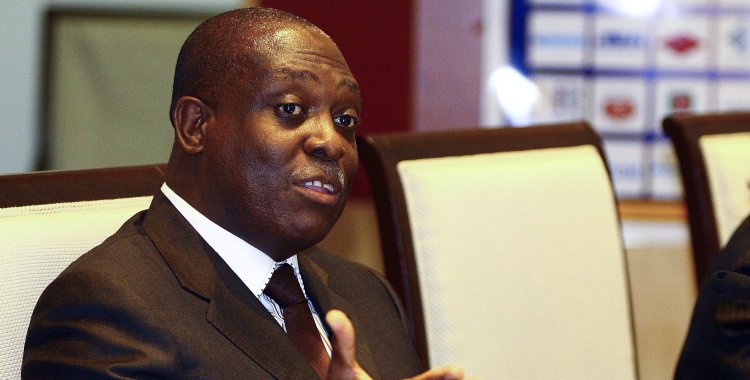Manuel Vicente is protected by the Angolan law of immunity for holders of public office, which limits this protection to five years after the end of the exercise of functions, and that period expires now.
The Portuguese researcher maintains that, "from next week, a legal decision must be taken" on the charges against the former ruler, namely as a defendant in "Operation Fizz" in Portugal, but also as implicated by the Attorney General's Office of the Angolan Republic (PGR) in "one third" of the prosecution in the case of the business of the Angolan generals 'Kopelipa' and 'Dino' with Chinese businessmen.
Rui Verde signs a chapter of a book on justice in Africa published this week by Pretoria Law University Press ("Criminal justice and accountability in Africa: Regional and national developments"), in which he outlines the legal and, above all, political reasons that were in the origin of the surrender by the Portuguese justice to the Angolan justice in 2018 of the responsibility to try Manuel Vicente in the process resulting from the "Operation Fizz", concluded with the conviction of former deputy prosecutor Orlando Figueira to six years and eight months in prison.
The process put relations between Portugal and Angola at one of the lowest levels of the respective diplomatic "thermometer" since Angolan independence, in November 1975, and Luanda ended up "winning" the dispute, in Rui Verde's opinion, with the separation of the process and the submission of the procedural document relating to Vicente to the Angolan PGR.
Among the various arguments invoked, according to the author of the article "Post colonialism and sovereignty vs international justice: The case of Angola", the most important was that of "sovereignty", despite Manuel Vicente having been accused of corrupting a Portuguese magistrate to extract exclusively private advantage in the personal acquisition of a luxury property on the outskirts of Lisbon.
"What started out as a judicial process turned out to be an intense political dispute between the two countries. Angola was adamant that it was not a question of justice, but of its own sovereignty, and that Portugal was using legal mystifications to exercise power against their former African colony", writes Rui Verde.
"Portugal [for its part] maintained that it was seeking justice, and that corrupting a Portuguese judicial official in Portugal was a very serious matter, claiming, in terms of political aspects, that the Government was powerless to intervene within the legal system", he adds.
Since the 2008 economic and financial crisis, Portugal has become heavily dependent on Angolan investment and this circumstance has proved to be decisive.
Due to "its financial and economic dependence", argues Rui Verde, Portugal ended up granting the Angolan claim and, in January 2018, after almost a year of litigation between the two countries, at the beginning of the trial phase, the Portuguese judge separated the process against Vicente of the other co-defendants, continuing the process only against the Portuguese, sentenced to prison in December 2018.
As for Manuel Vicente, meanwhile alone in a separate court case, he immediately appealed the decision to put him on trial in Portugal to the Lisbon Court of Appeal, which proved him right.
"After some not very discreet pronouncements of concern on the part of the Portuguese Government regarding the negative impacts that the case was having on the bilateral relationship, the Lisbon Court of Appeal decided, in May 2018, to send the case to Luanda", says the author, adding that when the process arrived in the Angolan capital, it "stagnated".
The case has been shrouded in silence since May 2018 and "the Angolan authorities are apparently awaiting the end of the 'ratione personae' of immunity, which will occur in 2022. Most likely after that, the Angolan courts will declare that Vicente is covered by the amnesty law of 2016 and thus the legal process will end, without any consequences", predicts the Portuguese jurist, referring to a law approved even in the time of former President José Eduardo dos Santos, which amnesty all crimes with penalty up to 12 years in prison, committed until 2015.
Rui Verde considers the (non) trial of Manuel Vicente by the Portuguese justice as "an exemplary case of privatization of public prerogatives, since the acts indicted are not public acts, but strictly private ones, and he used all the Government machinery to defend".
"Angola's sovereignty was reinforced by this case. Only in 2022 [from next Tuesday] will it be known whether justice will also be done", concludes the jurist.
The "Operation Fizz" process is related to payments of more than 760 thousand euros from former vice-president Manuel Vicente, and the offer of a job to Orlando Figueira as legal advisor to Banco Privado Atlântico, in Angola, in return for the filing of inquiries in which the former president of Sonangol was targeted, namely in the acquisition of a luxury property in the Estoril-Sol building, for 3.8 million euros.
In the Angolan case in which he may be involved, Manuel Vicente will have helped and also benefited from deals made by Manuel Hélder Vieira Dias, known as 'Kopelipa', former security man of the late President of the Republic José Eduardo dos Santos, and by Leopoldino Fragoso do Nascimento, known as 'Dino', businessman and also a man trusted by the former head of state.
The deals, carried out with Chinese businessmen from China International Fund, Limited, were the subject of an accusation by the Public Ministry of Angola, alleging the practice by the defendants of crimes of criminal association, money laundering, embezzlement, forgery of documents, among others, harming the Angolan State in hundreds of millions of euros.
As for the outcome of the cases, "filing everything away, doing nothing, is perhaps not the best solution", especially in the current political context in Angola and the accumulation of accusations of "selective justice" that the President, João Lourenço, was targeted during his first term, concluded the jurist.







